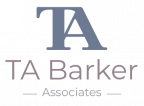To manage sickness levels and keep absence from work down, you need to:
Monitor absence levels to find out how much they are costing your business. Keep a record for each employee and monitor any emerging patterns. Absence costs the UK economy £17 billion a year in work falling behind schedule, damage to customer service and company reputation, reduced morale among colleagues trying to cover and the expense of hiring temporary staff.
Have a clear policy for managing sickness absence and unauthorised absence. This should include how employees tell you they are unwell and absent from work, both managers and staff understanding the purpose and process of ‘return to work interviews’, and any triggers towards disciplinary action if needed.
Understand the role GPs play in helping employees return to work and how the ‘Statement of Fitness for Work’, commonly called a ‘Fit Note’, is used
Think about the impact on employees’ physical and emotional wellbeing of:
Working conditions
Your business’s culture – for example, is it open and inclusive or hostile and unsupportive?
Working patterns – for example, are there peaks and troughs of activity, do you have shift patterns that mean employees lose sleep?
It can be difficult for small businesses
For many employers, particularly those running a small business, trying to work around sickness or unauthorised absence can be very difficult.
Most sickness last only a day or so – some a week or two. But they are short-term illnesses, this is good practice of what your employee should do if they are not coming in to work:
- Speak to their manager as soon as possible. Many employers specify that within an hour of the employee’s normal start time they must be notified of the nature of the illness and a likely return date.
- If the illness lasts less than seven days, provide a self-certificate form
- If the illness lasts seven days or more, provide a Statement of Fitness for Work (or Fit Note) from their GP.
Fit Notes allows the doctor to advise you if the employee is ‘unfit for work’ or ‘may be fit for some work’. GPs now have to advise on fitness for work in general rather than fitness for the employee’s specific job. This could include the employee to return to work gradually or lighter duties, and not necessarily in their normal job. The GP can provide help and advice on this.
An unexpected absence must also be managed effectively. If they simply do not turn up or are late you must still manage this kind of unauthorised absence and find out the reasons why they were absent or late.
If you would like a review of your HR absence management processes, TA Barker Associates can help we have nearly 30 years’ experience of managing teams of staff, process and procedure to embed supportive and effective people management services for business.
Contact us on info@tabarkerassociates.co.uk

